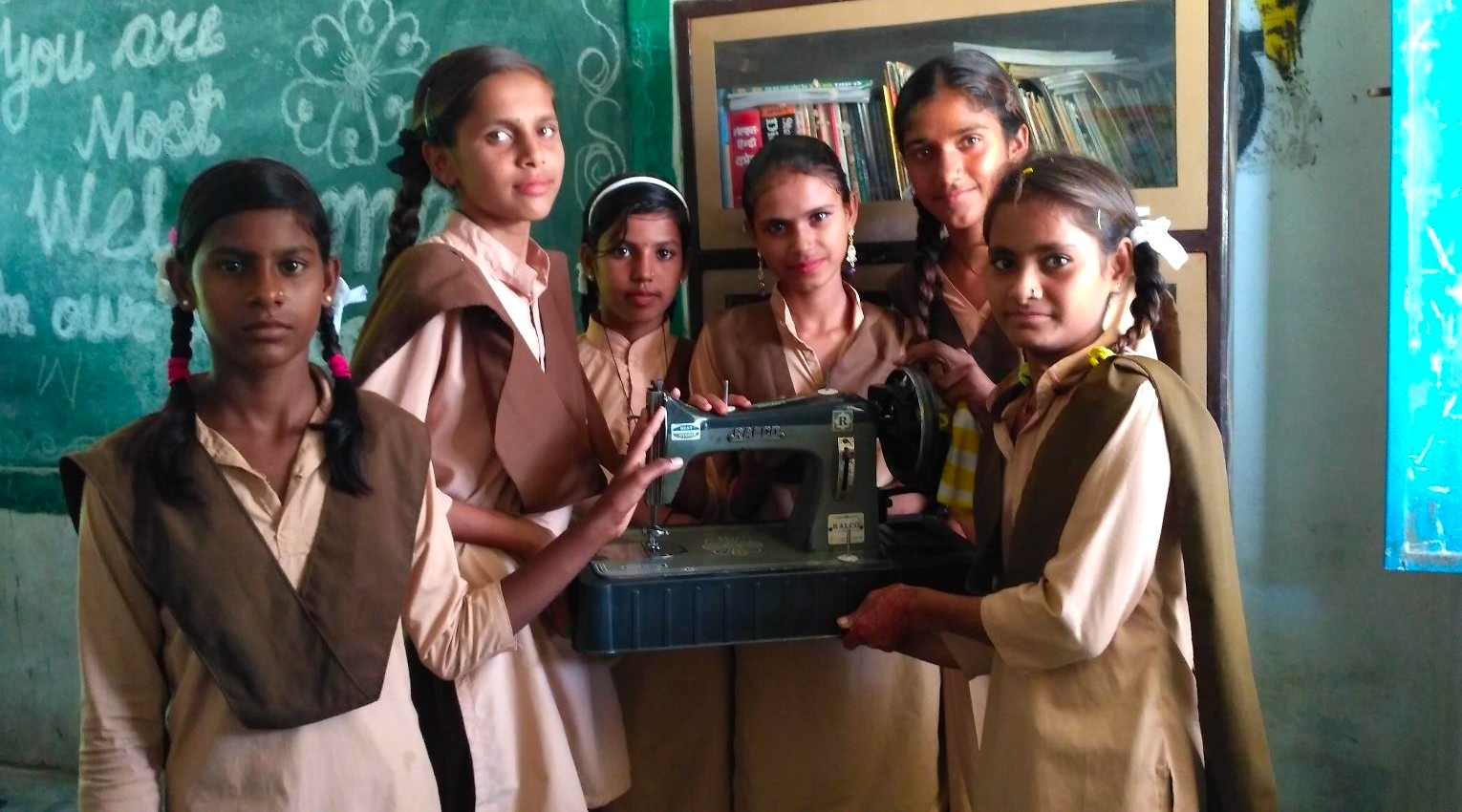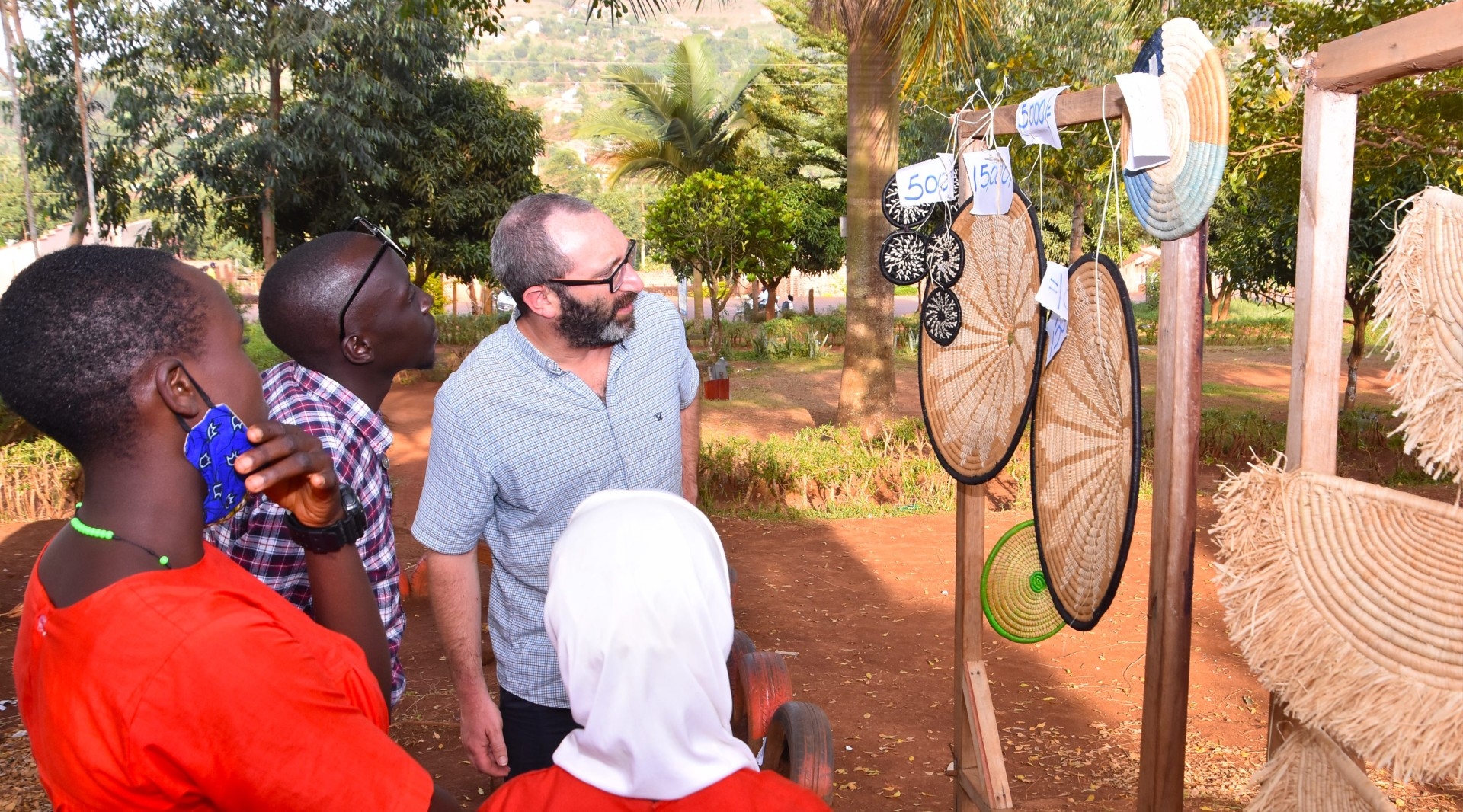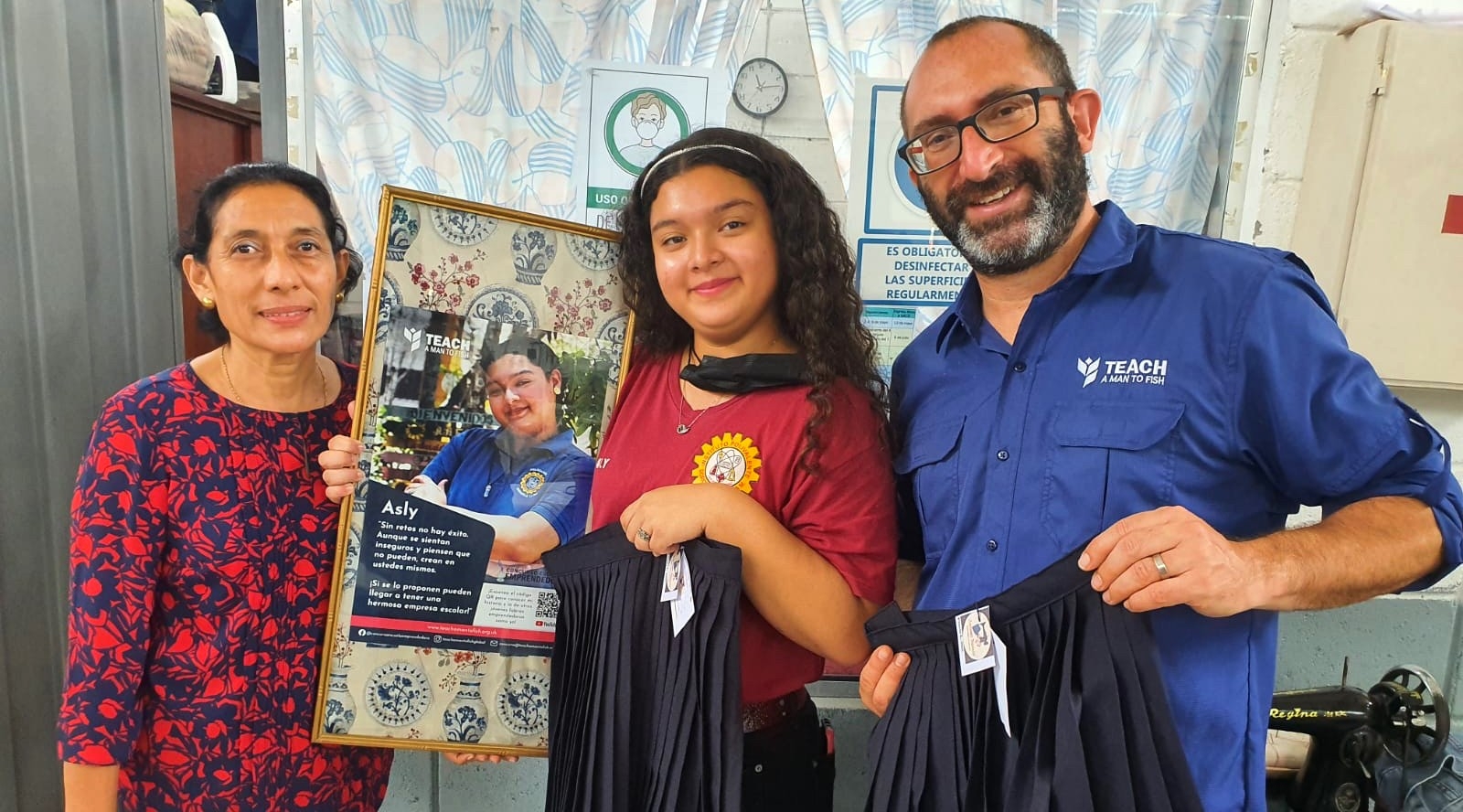When Joshua Okot was a 15-year-old high school student in the northern Ugandan city of Lira, he had an experience that sparked a passion for entrepreneurialism and wound up changing his life.
For two years, Okot was part of an innovative program designed to help teenagers acquire life and work skills through developing youth-led businesses. He and his classmates met regularly with a mentor who visited from the Ugandan capital of Kampala, advancing their businesses projects while learning communication, teamwork, leadership, problem-solving, creativity and other practical skills.
Okot went on to university and by age 20 had launched his own information technology company, KaKebe Technologies, which currently employs 20 people. Now 24, Okot also manages an online store, KaKebe Shop, that sells everything from flat-screen TVs to Ugandan fresh fish stew. His newest venture, Mwonya African Entertainment, is a music and podcast streaming service.
Okot credits that high school program — the School Enterprise Challenge, organized by the UK-based charity Teach A Man To Fish — with making him who he is today.
“This program helped me start my journey to becoming an entrepreneur,” Okot said. “We learned how to start, run and maintain a business. The curriculum and the content we were given really motivated and inspired me.”
Teach A Man To Fish is the brainchild of Nik Kafka, a 50-year-old British Jew (and a distant relative of Prague novelist Franz Kafka). That idea is to equip educators to help young people in and out of school settings develop skills that will enable them to get decent jobs or start their own businesses. Its philosophy is based on the adage “Give a man a fish and you’ll feed him for a day; teach a man to fish and you’ll feed him for a lifetime.”
Kafka’s ultimate vision is a world free from poverty where young people can reach their full potential.
“We get teachers to facilitate groups of 15 to 25 students to start an enterprise together,” Kafka said of the program’s model. “These students agree on an idea to pursue — on some kind of environmental or social problem to solve — and then think about how the profits can be used to make a difference.”

A business formed by these six schoolgirls in Rajasthan, India, became a leading local producer of reusable menstrual pads. (Courtesy of Teach A Man To Fish)
In India, for example, six teenage girls in the program spent six months developing and testing designs for reusable menstrual pads, which they then produced and sold to classmates. The sanitary pads proved so popular that the founders of the microenterprise, My Right, couldn’t keep up with demand. Local women are now employed producing them in bulk.
Half a world away, Nahomi Treminio Ruíz from rural Matagalpa, Nicaragua, started a cereal business with classmates in the program when she was 13. After her father died suddenly in 2017 and her family found itself without their primary breadwinner, Nahomi put her newly acquired business skills to use. With a teacher’s help, she and her jobless mother started a fried snacks business called Fritanga Nahomi that saved her family from financial ruin.
“In the future I want to be an entrepreneur to help people who are unemployed, and to be an example of improvement for others,” Nahomi said.
Over the course of nearly two decades, Teach A Man To Fish has trained some 530,000 young people, involved 27,700 teachers and resulted in 20,700 school businesses. In 2022 alone, 33,546 youths participated in programs in 34 countries, 3,652 teachers guided students and 1,468 actual businesses were launched by students.
With 73 million unemployed young people worldwide and an expected 1 billion expected to join the workforce over the next decade, Kafka says, practical skill-building programs that offer more than just a conventional education are essential.
“The need for building young peoples’ skills and tackling the youth unemployment crisis has never been greater,” Kafka said.
Kafka’s inspiration for creating Teach A Man To Fish came from his own experience. He grew up in northwest London, attended a Jewish school and eventually went into the banking industry, which seemed like “a sensible choice for a nice Jewish boy,” he said.

Nik Kafka visits Uganda’s Heritage Primary School, where students and teachers run a school business that sells traditional, grass-woven Ugandan baskets. (Courtesy of Teach A Man To Fish)
“I spent a lot of time traveling the world and seeing the terrible situation some people had to live in for no more reason than the accident of their birth,” Kafka said. “I became annoyed with the injustice of it all.”
In 2003, Kafka went to Paraguay, a landlocked South American nation plagued by poverty, joblessness and economic inequality, and ended up collaborating on a project with Fundación Paraguaya de Cooperación y Desarrollo, one of the country’s biggest nonprofit agencies. The organization’s flagship San Francisco School embodied the school business model Kafka later adapted.
“I went pretty quickly from working in microfinance to making education much more relevant and impactful; everything snowballed from there,” Kafka said. “We were inspired by this work in Paraguay, then I came back to the UK and launched Teach A Man To Fish three years later.”
Kafka’s organization operates on a $1 million annual budget and has 20 employees around the world, including in its London headquarters and regional offices in Honduras, Rwanda, South Africa and Uganda. The charity also works with partners in nine other countries. Its activities are funded by the Saville Foundation and by private donors.
In 2022, Kafka received the Charles Bronfman Prize, a $100,000 cash award given annually to a Jewish humanitarian under 50 whose innovative work has significantly improved the world. The Prize, now celebrating its 20th anniversary year, was founded in 2004 by Ellen Bronfman Hauptman and Stephen Bronfman, together with their spouses, Andrew Hauptman and Claudine Blondin Bronfman, to honor their father on his 70th birthday.
“Teach A Man To Fish has been an 18-year labor of love, and it’s entirely been informed by Jewish values,” Kafka said.
He said receiving the Charles Bronfman Prize was a fantastic accolade.
“There are so many Jews making huge contributions and doing great work that isn’t just focused on the Jewish community,” Kafka said. “As Jews, we have a responsibility to the whole world and not just ourselves. According to Maimonides, the highest form of charity is to help someone help himself and give him skills.”
The results of Teach A Man To Fish speak for themselves. In Rwanda, 50% of program graduates earn nearly three times the national average of those their age.
“When we first started out, this was just too left-field for many schools and governments, and it didn’t make any sense to them,” Kafka recalled. “They said, ‘This isn’t what young people need.’ But we made the case that young people need to leave school with skills they can use to survive and thrive — and to know how to set up a business when there are no jobs. Over the years, the world has moved a long way in our direction.”
JTA has documented Jewish history in real-time for over a century. Keep our journalism strong by joining us in supporting independent, award-winning reporting.
This story was sponsored by and produced in partnership with The Charles Bronfman Prize, an annual prize presented to a humanitarian whose innovative work fueled by their Jewish values has significantly improved the world. This article was produced by JTA's native content team.
More from The Charles Bronfman Prize





